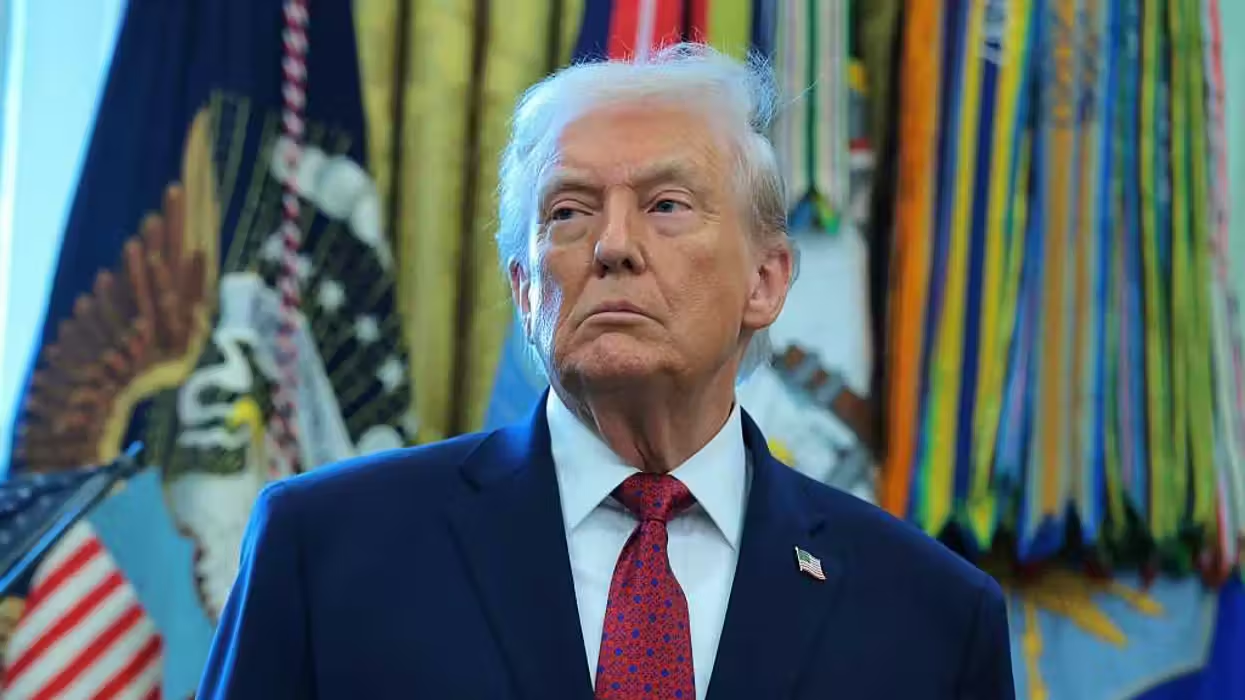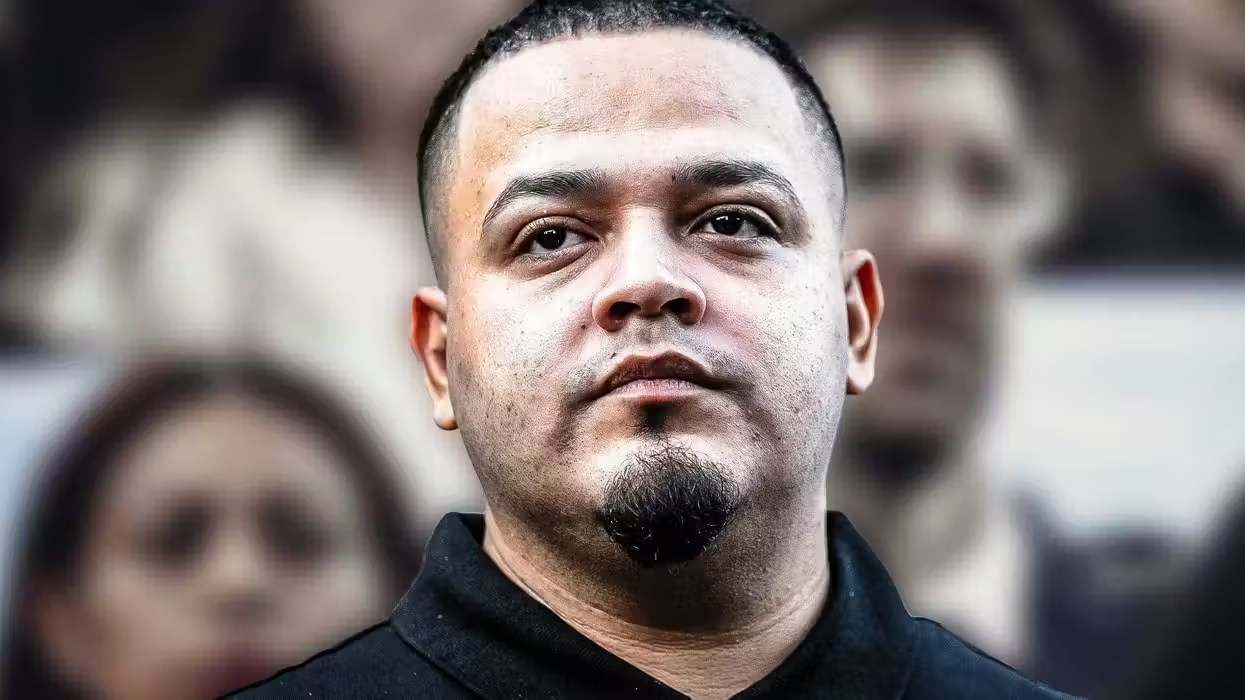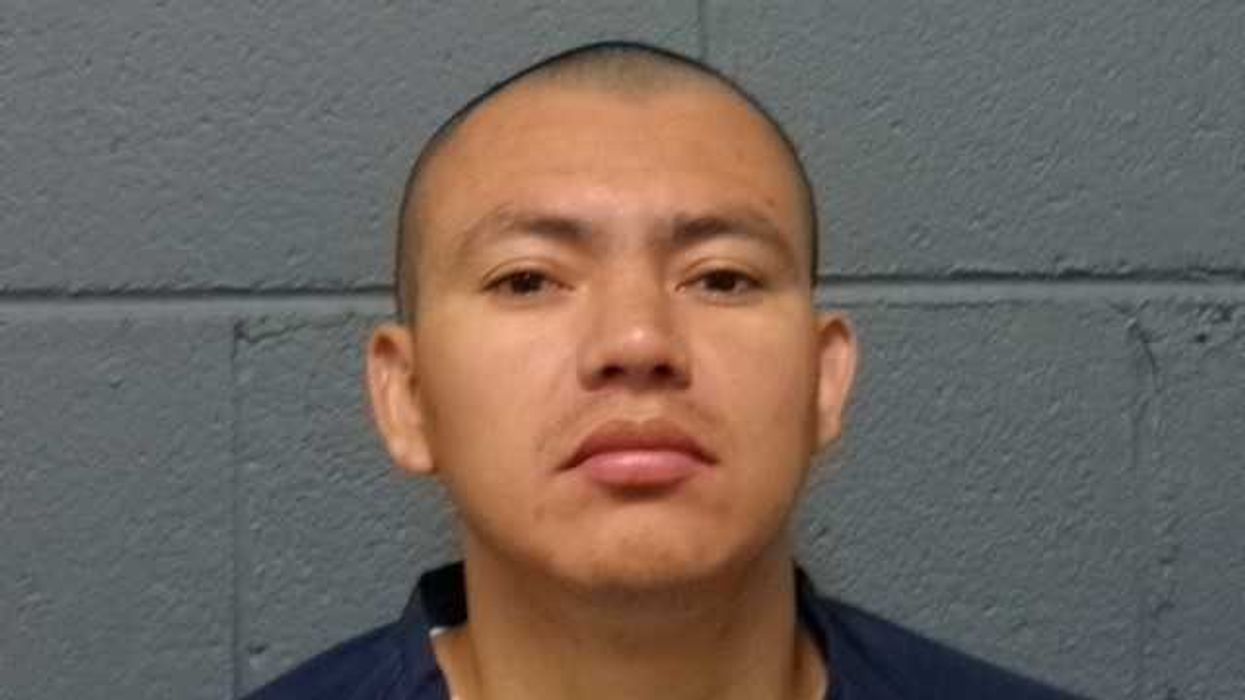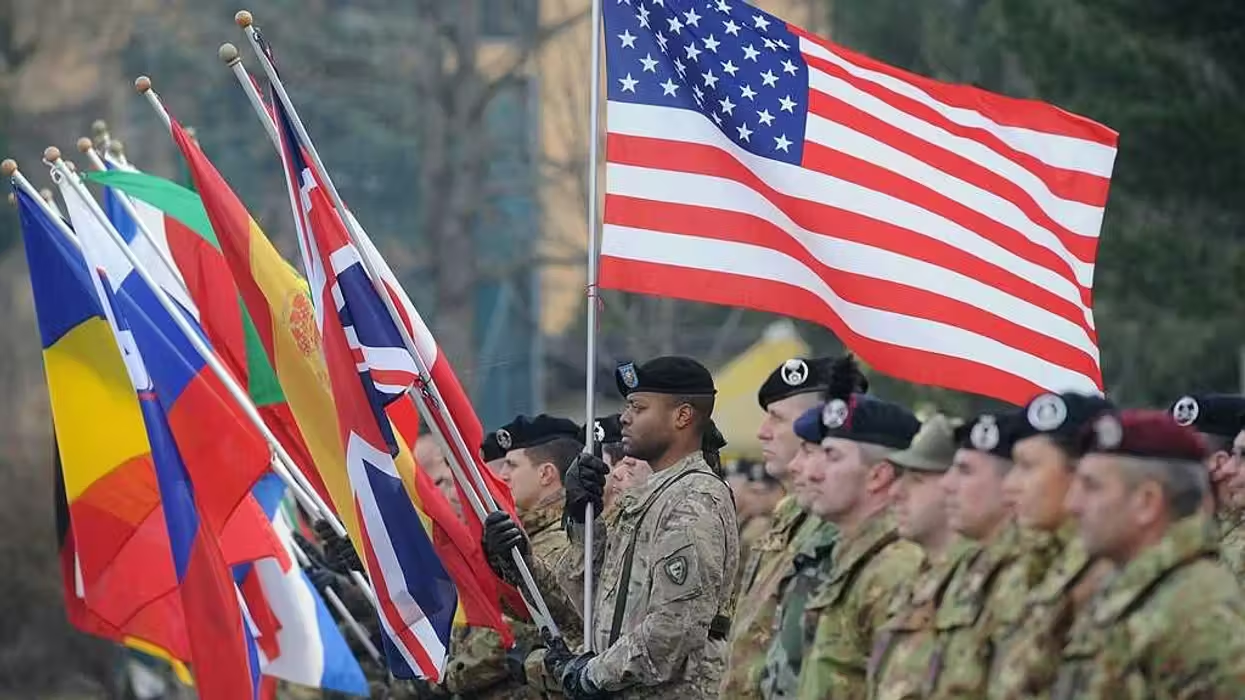
© 2025 Blaze Media LLC. All rights reserved.
Shadowy Islamic Terror Group Emerges In Syria: 'From Their World View, Democracy Is a Religion
May 10, 2012
"...a religious system that is antithetical to the system they would like to install."
DAMASCUS, Syria (The Blaze/AP) -- Syria is in shambles, as the country continues to experience incessant instability. As terror rips through the nation's streets, a mysterious, new jihadist group called Jabhat al-Nusra (Al-Nusra Front) is claiming responsibility for much of the carnage. Little is currently known about the cell, although some experts suspect that the al-Qaida either set the groundwork for the organization or served as the inspiration for its creation.

In the most recent example of terror and violence (though it's not yet known if the group was involved), two suicide car bombs ripped through the Syrian capital Thursday, killing 55 people. The explosions also shaved the facade off a military intelligence building in the deadliest explosions since the country's uprising began 14 months ago, the Interior Ministry said.
Residents told an Associated Press reporter that the blasts happened in quick succession during morning rush hour, with an initial small explosion followed by a larger bomb that appeared aimed at onlookers and rescue crews arriving at the scene. Paramedics wearing rubber gloves collected human remains from the pavement as heavily damaged cars and pickup trucks smoldered.
There was no claim of responsibility for Thursday's blasts. But with the Al-Nusra Front claiming responsibility for several past explosions, its involvement is certainly being questioned.

The latest attack adds to raising fears that terrorist groups are entering the fray and exploiting Syria's chaos. In addition to the 55 dead, the ministry also said there were 15 bags of human remains, meaning the death toll was likely to rise.
More than 370 people also were wounded in the attack, according to the ministry, which is in charge of the country's internal security. It said the explosives weighed more than 1,000 kilograms (2,200 pounds).
Central Damascus is under the tight control of forces loyal to President Bashar Assad but has been struck by several bomb attacks, often targeting security installations or convoys, since the revolt against him began in March 2011.
But the previous attacks happened on a weekend when many people stay home from work, making it less likely for civilians to be killed. Thursday's blast was similar to attacks waged by al-Qaida in Iraq, which would bolster past allegations by top U.S. intelligence officials that the terror network from the neighboring country was the likely culprit behind previous bombings in Syria. That raises the possibility that its fighters are infiltrating across the border to take advantage of the political turmoil.

The Al-Nusra Front has claimed responsibility for some of the previous attacks in statements posted on militant websites. Little is known about the group, though Western intelligence officials say it could be a front for al-Qaida's Iraq branch. NPR has more:
Brian Fishman has been studying jihadist groups in Syria's neighbor, Iraq, for years. He says so far, Jabhat al-Nusra appears to be legitimate. Online, he says, they use the typical jihadi icons and rhetoric."Moreover, the [Jabhat al-Nusra] as a group has been embraced by the jihadi community online," Fishman says, "including some important scholars, particularly in Jordan, but other major figures, ideological figures, within the jihadi trend."
Still, the group is very small, he says, and not necessarily aligned with the protesters and the rebels in Syria. While jihadists might have the same goal as the protesters and the rebels — overthrowing the Syrian regime — Fishman says they don't have the same plan for what happens after that overthrow. And they certainly don't have the same ideology.
"From their world view, democracy is a religion because it asserts the sovereignty of human beings over the sovereignty of God," Fishman says. "So when they see protesters in Syria calling for democracy, they believe that this is a call for the imposition of a religious system that is antithetical to the system they would like to install."
Just how connected the group is to al-Qaida isn't yet known. But al-Qaida leader Ayman al-Zawahri called for Assad's ouster in February and has clearly taken a staunch position in the ongoing dispute. Considering this stance, connections to Jabhat al-Nusra could run deep.

"We strongly condemn the twin bomb attacks this morning in Damascus, which seem to have targeted the maximum amount of casualties and damage and which we see as an act of pure terrorism, from what we see initially," said Michael Mann, spokesman for EU foreign policy chief Catherine Ashton.
The Syrian government blames the bombings on the terrorists it says are behind the uprising, which has been the most potent challenge to the Assad family dynasty in Syria in four decades. But opposition leaders and activists routinely blame the regime for orchestrating the attacks, saying they help it demonize the opposition and maintain support among those who fear greater instability.
Syria's state-run news agency, SANA, posted gruesome pictures of the mangled, charred and bloody corpses and human remains - something that it has done after previous bombings, as well. The decision to show such graphic images could be seen as a tactic by the regime to shock Syrians into abandoning any support for the opposition, which it blames for the country's chaos.
Maj. Gen. Robert Mood, the Norwegian head of the U.N.'s cease-fire monitors in the country, toured the site Thursday and said the Syrian people do not deserve this "terrible violence."
"It is not going to solve any problems," he said, when asked what his message was to those who are carrying out such attacks. "It is only going to create more suffering for women and children."
This footage allegedly shows today's explosions:
The attack occurred a day after a roadside bomb hit a Syrian military truck shortly after Mood rode by in a convoy traveling to the southern city of Daraa, the birthplace of the uprising.
The relentless violence in the country has brought a cease-fire plan brokered by special envoy Kofi Annan to the brink of collapse. The U.N said weeks ago that more than 9,000 people had been killed. Hundreds more have died since as the conflict has become increasingly militarized, with protesters taking up arms or joining forces with army defectors to fight a brutal crackdown by regime forces.
On Thursday, Annan appealed for calm and an end to bloodshed.
"The Syrian people have already suffered too much," Annan said in a statement.
Thursday's explosions began about 7:50 a.m. as the area was crowded with people going to work or doing morning errands. Witnesses said the first explosion attracted curious passers-by, then seconds later, a far larger explosion went off, causing massive damage.
Syrian TV showed shaken young girls in tears who said they were in the nearby Qazaz First Elementary School when the blast occurred. An hour after the blast, the school's gates were closed and no one was inside.

The explosions left two craters at the gate of the military compound, one of them 3 meters (10 feet) deep and 6 meters (20 feet) wide. Foreign Ministry spokesman Jihad Makdissi posted a message on his Facebook page urging people to go to hospitals to donate blood.
"The house shook like it was an earthquake," housewife Maha Hijazi said as she stood outside her house across the street from the targeted compound, which is headquarters for a military intelligence department known as the Palestine Branch.
The latest major explosion in the capital occurred on April 27 when a suicide bomber detonated an explosives belt near members of the security forces, killing at least nine people and wounding 26.
The previous deadliest attack in Damascus occurred on Dec. 23, when two car bombers blew themselves up outside the heavily guarded compounds of Syria's intelligence agencies, killing at least 44 people.
On March, 17, two suicide car bombers struck in near-simultaneous attacks on heavily guarded intelligence and security buildings in Damascus, killing at least 27 people. On Jan. 6, an explosion at a Damascus intersection killed 26, including many policemen.
International diplomacy has failed to stop the bloodshed, and the U.N. has ruled out military intervention of the type that helped bring down Libya's Moammar Gadhafi, in part out of fear that it could exacerbate the violence.
Annan brokered a peace plan last month, but the initiative has been troubled from the start, with government troops shelling opposition areas and rebels attacking military convoys and checkpoints after the cease-fire was supposed to begin on April 12.
A team of 70 U.N. military observers now in Syria should grow to more than 100 in the coming days. A full team of 300 is expected by the end of the month to oversee a cease-fire intended to allow for talks on a political solution to the conflict.
Want to leave a tip?
We answer to you. Help keep our content free of advertisers and big tech censorship by leaving a tip today.
Want to join the conversation?
Already a subscriber?
Billy Hallowell is a digital TV host and interviewer for Faithwire and CBN News and the co-host of CBN’s "Quick Start Podcast."
Billy Hallowell
Billy Hallowell is a digital TV host and interviewer for Faithwire and CBN News and the co-host of CBN’s "Quick Start Podcast."
more stories
Sign up for the Blaze newsletter
By signing up, you agree to our Privacy Policy and Terms of Use, and agree to receive content that may sometimes include advertisements. You may opt out at any time.
Related Content
© 2025 Blaze Media LLC. All rights reserved.
Get the stories that matter most delivered directly to your inbox.
By signing up, you agree to our Privacy Policy and Terms of Use, and agree to receive content that may sometimes include advertisements. You may opt out at any time.






